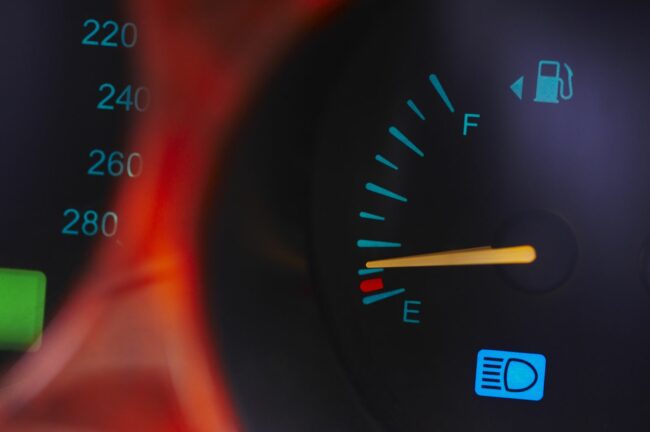
In the realm of automotive mechanics and maintenance, the engine hours vs mileage calculator debate has long intrigued both professionals and enthusiasts alike. While mileage has traditionally served as a reliable indicator of a vehicle’s usage, the concept of engine hours has gained traction as a potential alternative metric. In this article, we delve into the intricacies of the engine hours vs. mileage debate and explore the feasibility of an engine hours vs. mileage calculator.
The Essence of Engine Hours
 Engine hours, as the term suggests, measures the cumulative time an engine has been running. This metric finds its roots in industries such as aviation and marine, where engines often operate for extended durations even when the vehicle is stationary. By tracking the engine’s runtime, we can gain insights into its wear and tear, regardless of the distance traveled.
Engine hours, as the term suggests, measures the cumulative time an engine has been running. This metric finds its roots in industries such as aviation and marine, where engines often operate for extended durations even when the vehicle is stationary. By tracking the engine’s runtime, we can gain insights into its wear and tear, regardless of the distance traveled.
Mileage: The Classic Yardstick
Mileage, on the other hand, has reigned supreme as the conventional measure of vehicle usage. By calculating the distance a vehicle has covered, we can assess its overall wear and performance. Mileage has become ingrained in automotive culture, serving as a benchmark for determining factors like resale value, maintenance intervals, and even fuel efficiency ratings.
The Need for a Hybrid Approach
Given the strengths and limitations of both metrics, there is a growing interest in combining engine hours and mileage to achieve a more comprehensive understanding of a vehicle’s usage. This hybrid approach aims to account for scenarios where the engine runs for prolonged periods without covering significant distances, such as during idling, stationary operation, or even traffic congestion.
Introducing the Engine Hours vs Mileage Calculator
To bridge the gap between engine hours and mileage, a new breed of calculators has emerged. These sophisticated tools aim to provide a more accurate representation of a vehicle’s usage by considering both engine hours and mileage simultaneously. By inputting the relevant data, including engine hours vs mileage calculator, these calculators generate insightful analytics and establish a holistic picture of a vehicle’s wear and tear.
The Benefits and Applications
The engine hours vs. mileage calculator offers numerous benefits and applications to various stakeholders in the automotive industry. For fleet managers, it can assist in optimizing maintenance schedules, identifying potential engine issues, and ensuring cost-effective operation. For used car buyers, the calculator can provide a clearer assessment of a vehicle’s true usage and condition, potentially avoiding hidden pitfalls. Additionally, mechanics and service centers can leverage this tool to streamline their diagnostics and offer tailored solutions to customers.
Limitations and Considerations
As with any emerging technology, the engine hours vs. mileage calculator has its limitations. It heavily relies on accurate and up-to-date data input to generate meaningful results. Additionally, different vehicle models and engine types may require specific calibration for accurate calculations. Therefore, it is crucial for users to consult manufacturer guidelines, seek professional advice, and exercise caution when interpreting engine hours vs mileage calculator.
Factors Influencing Engine Hours vs. Mileage Calculations
 When considering the complexities of engine hours vs. mileage calculations, several influential factors come into play. These variables impact the accuracy and reliability of the calculations, and it is essential to acknowledge their significance.
When considering the complexities of engine hours vs. mileage calculations, several influential factors come into play. These variables impact the accuracy and reliability of the calculations, and it is essential to acknowledge their significance.
- Driving Conditions: Different driving conditions can significantly affect engine wear. Stop-and-go traffic, harsh terrains, and frequent acceleration or deceleration can place greater stress on the engine, leading to increased wear and tear. By factoring in driving conditions, the engine hours vs. mileage calculator can better estimate the true impact on the vehicle.
- Maintenance and Care: Proper maintenance and care play a crucial role in a vehicle’s longevity. Regular oil changes, timely servicing, and adherence to recommended maintenance intervals can impact engine wear and, consequently, engine hours.
- Vehicle Age and Condition: Older vehicles may have accumulated higher engine hours due to their longer lifespan. The wear and tear associated with age and condition can vary significantly, affecting engine performance and overall mileage.
The Best Mileage Gadget From Germany
The mileage blocker is special in numerous ways. You can set up the entire gadget on your own thanks to its simple DIY installation guide. Additionally, SKF’s German team created a mobile application. Direct selection and switching between different modules is possible using your smartphone. Additionally, the mileage blocker is made of materials of the highest caliber and heat resistance, ensuring its faultless operation in all conditions. Fortunately, you may get the mileage blocker from the official website, as it is accessible online.
Takeaway
The engine hours vs mileage calculator debate marks a significant evolution in the realm of automotive diagnostics and maintenance. While mileage has been the go-to metric for decades, engine hours introduce a new dimension to comprehensively assess a vehicle’s usage. With the advent of sophisticated calculators, we are witnessing the integration of both metrics, paving the way for a more precise evaluation of engine wear and vehicle lifespan. As the automotive industry continues to evolve, the engine hours vs. mileage stands poised to become an invaluable tool in optimizing vehicle performance, reliability, and overall efficiency.
Latest Posts
- 1
- 2
Is Buying a Car with Over 100k Miles a Good Idea?
April 10, 2024 - 3
Why Are High Mileage Cars So Expensive? – A Guide
April 5, 2024 - 4
Where Is The Mileage Located In A Car?
April 3, 2024 - 5
Whats High Mileage in Vehicles?
March 29, 2024 - 6
What’s The Gas Mileage On A Smart Car: A Comprehensive Guide
March 27, 2024 - 7
At What Mileage Should You Sell Your Car?
March 22, 2024 - 8
Should You Buy a Car with Over 100k Miles?
March 20, 2024 - 9
Should You Buy a Car with 100k Miles?
March 15, 2024 - 10
Understanding ODO Meaning in a Car
March 13, 2024








